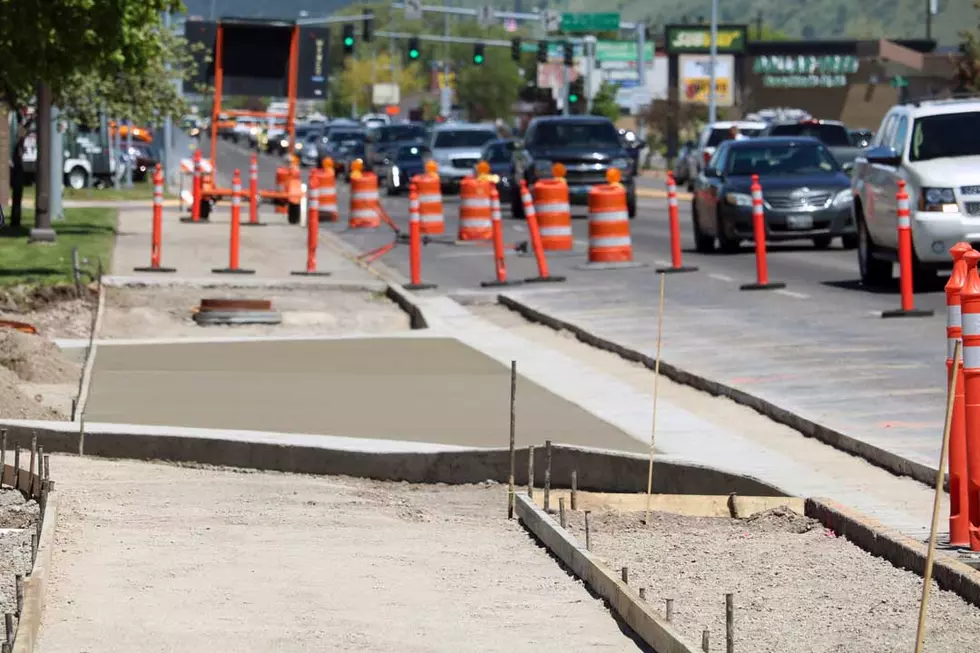
Missoula County to give 5% preference to minority, women-owned businesses
After months of talk and revision, Missoula County has implemented a new resolution giving automatic preference to minority- and women-owned businesses when they complete for county contracts.
Along the way, the county will also complete a study to see what other barriers minority businesses face in Missoula County.
“I'd like to know what those barriers are and how to remove them,” said David Wall, the county's auditor. “The only way to do that is to learn more about our market here locally in Missoula and what kind of businesses there are and the barriers they face.”
Wall, who helped draft the new resolution, said businesses owned by women and minorities remain at a historic disadvantage under the established system.
Those barriers include their ability to compete equally in the free market due to diminished capital and credit opportunities, at least when compared to similar businesses not owned by a person of color, a woman or a person with a disability.
The county began exploring solutions last summer and landed on its procurement process as a starting point.
“This has been a long time coming,” Wall said. “What this is trying to do is take a system that has unequal outcomes for certain groups of people and create a level playing field for those folks as far as procurement and getting government contracts.”
Under the new resolution, the county will award a 5% reduction in its bid or quote to a registered businesses for all procurement that goes through the vendor selection process. Such bids are typically chosen only on pricing.
For procurement that use a scoring model where cost is just one of several factors, the county will increase the bid for registered businesses by 5%.
The county will also complete a deeper study to identify other barriers rooted in “race, ethnicity, gender identity or expression, ability status, sexual orientation, class or age.”
“Folks are looking for ways to adopt solutions to systemic barriers, and one of the things is to identify them,” said Jamar Galbreath, the county's equity coordinator. “It's a good first step, and it's one that's necessary. It's a good opportunity to examine some of the systemic barriers.”
The county's new policy is based in part on a 2016 study prepared for the Montana Department of Transportation on “availability and disparity.” The study, conducted by Keen Independent Research, analyzed conditions for minorities and women within the Montana marketplace, and their participation in transportation contracts.
At the time, the study identified 959 firms on the department's master bidder list. Of those, 216 were identified as a minority-owned business, or a business owned by a Caucasian woman.
The results found that between 2009 and 2014, minority and women-owned businesses received $226 million out of the $1.9 billion in contract dollars, or about 11.7% of the revenue.
“There is quantitative information indicating disparities regarding entry and advancement as employees within the industry, disparities in business ownership for certain groups, disparities concerning access to capital and bonding, and certain disparities in success of minority- and women-owned construction firms,” the report found. “Relatively more minority- and women-owned firms report difficulties networking with prime contractors or customers based on survey data.”
Wall said the county's new resolution gives local businesses that are registered with MDT as a Disadvantaged Business Enterprise a 5% boost when competing for a procurement contract, or when bidding a project.
And while the county doesn't yet have data as detailed in the MDT study, it plans to undertake a more localized study to crunch the numbers and identify other barriers faced by minority- and women-owned businesses that work with the county.
“Using that designation is a great first step,” Wall said. “I have no doubt the auditors office's procurement policies throw up barriers to certain groups of people.”
https://missoulacurrent.com/business/2020/07/missoula-preference-businesses/
